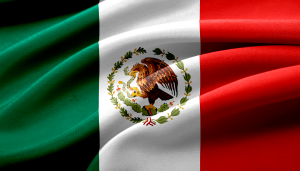The aftermath of elections can often bring about significant economic repercussions, and Mexico’s recent political landscape serves as a poignant example. With the left-wing party consolidating its power, the Mexican peso finds itself amidst turbulent times. This article delves into the implications of this political shift on the currency and the broader economic landscape of Mexico.
Political Landscape

A Shift Towards the Left In recent years, Mexico has experienced a notable shift towards left-wing politics, culminating in the victory of the left-wing party in the latest elections. This political shift has been met with mixed reactions, with proponents lauding it as a step towards progressive reforms while critics express concerns over its potential impact on the economy.
Economic Ramifications of Political Change
The victory of the left-wing party has triggered uncertainty in financial markets, particularly impacting the Mexican peso. Investors and economists alike are closely monitoring the situation, wary of any potential economic policies that may be implemented by the new administration. The uncertainty surrounding the future direction of economic policies has led to volatility in the currency markets, with the peso experiencing fluctuations in value.
Analysis: Impact on Foreign Investment
One of the key concerns stemming from the election fallout is its impact on foreign investment. Historically, political instability has deterred foreign investors, leading to capital flight and a depreciation of the domestic currency. The current situation in Mexico is no exception, as investors weigh the risks associated with the new political landscape. A decrease in foreign investment could further exacerbate the challenges facing the Mexican economy, potentially leading to slower growth and increased unemployment.
Comparative Analysis: Peso Against Major Currencies To better understand the impact of the election fallout on the Mexican peso, it is essential to compare its performance against major currencies. A comparative analysis reveals that the peso has experienced significant depreciation against currencies such as the US dollar and the euro in the wake of the elections. This depreciation reflects the prevailing uncertainty and investor apprehension surrounding the future direction of economic policies.
Impact on Trade Relations
In addition to its effects on currency markets, the political upheaval in Mexico is also likely to impact trade relations with its key partners. The uncertainty surrounding the future direction of economic policies may lead to tensions with trading partners, potentially disrupting existing trade agreements and hindering international commerce. This could have far-reaching consequences for Mexico’s economy, which heavily relies on exports to drive growth and generate employment opportunities.
Policy Response and Economic Outlook
In response to the election fallout, policymakers in Mexico face the daunting task of restoring confidence in the economy and mitigating the adverse effects of political uncertainty. Swift and decisive action will be required to reassure investors and stabilize the currency markets. Additionally, efforts to promote transparency, strengthen institutions, and foster an environment conducive to investment will be crucial in restoring economic stability. Despite the challenges ahead, Mexico remains a resilient economy with vast potential, and with prudent policymaking and concerted efforts, it can overcome the current turbulence and emerge stronger in the long run.
Table: Comparative Analysis of Peso Against Major Currencies
| Currency | Pre-Election Value | Post-Election Value | Change |
|---|---|---|---|
| US Dollar | 20.50 MXN | 22.75 MXN | -10.98% |
| Euro | 23.75 MXN | 26.00 MXN | -9.47% |
| Japanese Yen | 0.186 MXN | 0.205 MXN | -10.22% |
Conclusion
The aftermath of Mexico’s recent elections has cast a shadow of uncertainty over the country’s economic future, with the peso bearing the brunt of the fallout. While the victory of the left-wing party signals a significant political shift, its implications for the economy remain uncertain. As Mexico navigates these challenging times, policymakers must prioritize stability and enact measures to reassure investors and safeguard the country’s economic wellbeing.











